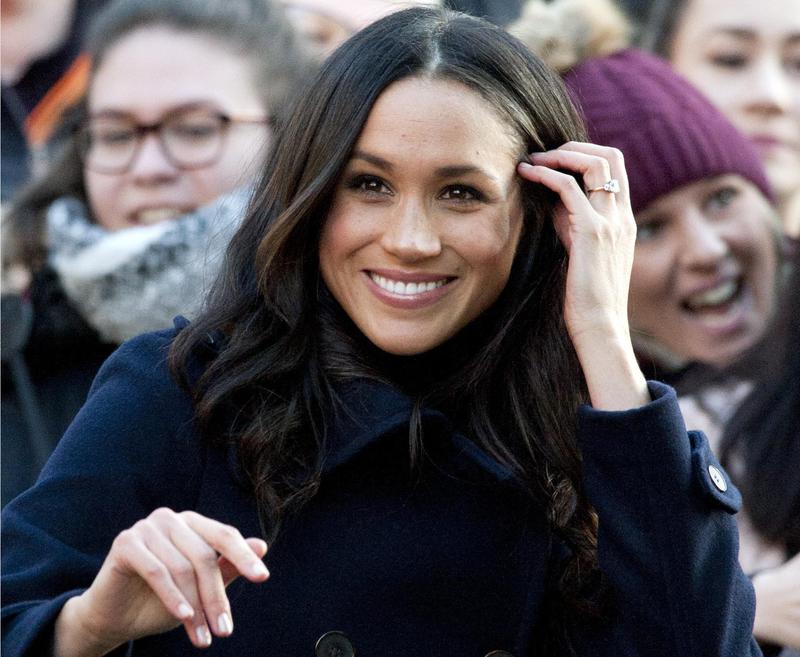The story behind Stand By Me
By Alan Connor
BBC NEWS
"Oh darling, darling..."
These sound like words from a straightforward love song, but everyone who heard it performed in St George's Chapel on Saturday knew that Stand By Me was more than that.
And there's a reason that the song sounded right coming from the gospel singers of the Kingdom Choir. Here's a line from the book of Psalms that sounds very much like the second verse: "Therefore will not we fear, though the Earth be removed, and though the mountains be carried into the midst of the sea."
Royal wedding 2018: The music behind the ceremony
Stand By Me sounds like gospel because it was once a hymn which adapted that psalm. It was published in 1905 by Charles Albert Tindley, though it may go further back into the black American oral tradition.
A 'civil rights anthem'
Tindley was a slave's son who volunteered as a janitor at an Episcopalian church in Philadelphia. He taught himself Greek through a correspondence course and learned Hebrew at a local synagogue, and eventually became the church's pastor, addressing its mixed-race congregations much like Michael Curry, who delivered the address at Saturday's wedding.
Flash-forward to 1960. Ben E. King - who knew his gospel - had left his successful band The Drifters over a contractual dispute, and he was wavering between chasing a solo career and asking for a job in his father's restaurant.
One evening, in his bedroom "with a cheap guitar", he noodled about, finding an update of Tindley's song. Proud of what he'd done, he sent it to his old band. "We don't need it," they replied.

So it was that, when King got a recording contract, and had a quarter of an hour spare at the end of a studio session, his producers asked whether he had anything knocking around to fool around with.
He sang Stand By Me acapella; everyone set to work. The producers - serial hit-makers Lieber and Stoller - added a Brazilian-inspired baiaó rhythm. Then they decided to add an orchestra. It became a great hit.
But in the original — and in the hymn that inspired it — something else is going on. Historian Craig Werner says that in the context of 1960s America, a black man singing the words "No, I won't be afraid" is "a classic case of political masking".
For many, this ballad is also, in fact, a civil-rights anthem.
That's why Harry and Meghan's choice of song meant more than if they'd gone with, say, Ed Sheeran's Shape Of You. And the performance by the Kingdom Choir takes Stand By Me back further still, re-infusing it with the defiance as well as the devotion of gospel.

MEDIA REACTION TO MIXED MARRIAGE
ABC NEWS
ABC NEWS
The daughter of a white father and African American mother, Ms Markle has written about the challenges of being biracial.
She's described having people think her mother was her nanny and the frustration of being "ethnically ambiguous" in the film and TV industry.
Since her relationship with Prince Harry became public, racist attacks in the press and on social media have escalated.
The surge in "mixed" marriages in the years after the court decision included, in California, the marriage of Thomas Markle to Doria Ragland (whose family line traces back to the slave workforce on the cotton plantations of the American South), and their daughter Meghan was born two years later.
She's described having people think her mother was her nanny and the frustration of being "ethnically ambiguous" in the film and TV industry.
Since her relationship with Prince Harry became public, racist attacks in the press and on social media have escalated.
The surge in "mixed" marriages in the years after the court decision included, in California, the marriage of Thomas Markle to Doria Ragland (whose family line traces back to the slave workforce on the cotton plantations of the American South), and their daughter Meghan was born two years later.
In Britain, media coverage of the betrothal of Ms Markle to the then-fifth in line to the British throne was a clanger-strewn affair.
"Now, That's Upwardly Mobile!" chortled the Daily Mail, pointing out that Ms Markle's family had gone from slavery to royalty in 150 years.
The Spectator columnist Melanie McDonagh opined that "seventy years ago, Meghan Markle would have been the kind of woman the Prince would have had for a mistress, not a wife".
Daily Mail columnist Rachel Johnson, whose brother, Boris, is Britain's Foreign Secretary, wrote approvingly that "the Windsors will thicken their watery, thin blue blood and Spencer pale skin and ginger hair with some rich and exotic DNA".
And the coverage drew an extraordinary direct rebuke from Kensington Palace, which in a statement deplored "the racial undertones of comment pieces... and the outright sexism and racism of social media trolls and web article comments" — surely the first time the British Royal family has had cause to complain about racism.
The family has also been obliged to keep a weather eye on its own ranks; the historically gaffe-prone Princess Michael of Kent apologised to Ms Markle last year after she wore a "Blackamoor" brooch to the Queen's Christmas lunch at which she met her new American relative for the first time.
OTHER STORIES

